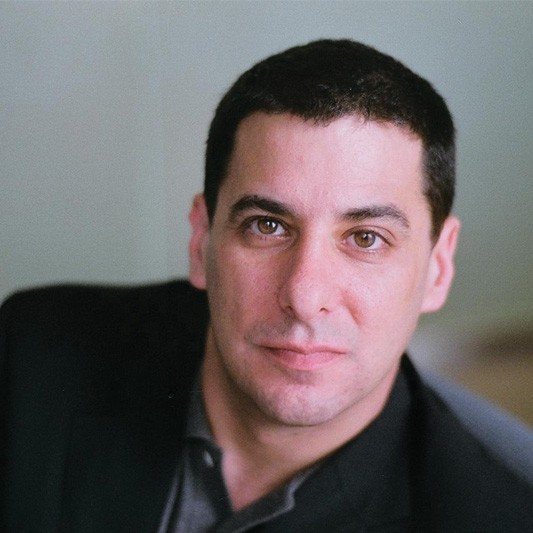
HBO Max series ‘Tokyo Vice’ explores Japan’s criminal underworld
American reporter delves into culture of Japanese yakuza

A new television drama series, available in its entirety on HBO Max, focuses on organized crime in Japan, featuring a Tokyo-based American journalist with sources on both sides of the law.
In Tokyo Vice, actor Ansel Elgort portrays Jake Adelstein, a Missourian working as a crime reporter in Tokyo, the first American ever in that role on the Japanese-language newspaper Yomiuri Shimbun.
In 1994, when Adelstein worked at the paper, the print edition had a circulation of 10 million, making it the largest in the world, according to its website. The newspaper’s daily circulation is still more than seven million. By comparison, The Wall Street Journal, among the most widely circulated U.S. newspapers, averaged 3.7 million combined digital and print subscriptions in the first quarter of this year. About 700,000 of those are print subscriptions.
Adelstein was a reporter at the Japanese newspaper from 1993 through 2005. The HBO Max limited series is inspired by his 2009 book Tokyo Vice: An American Reporter on the Police Beat in Japan. Adelstein had first gone to the country in 1988 as an exchange student and remained in Tokyo after being hired at the paper. His job was to cover crime.

“As a Japanese police reporter for 12 years,” he said in an email, “I covered serial killers, robbery, loan sharks, sex work and the 20-plus organized crime families collectively referred to as the ‘yakuza.’”
The book and television series explore the inner workings of the yakuza, which Publishers Weekly calls the “top-most villains of Japan’s organized criminal underworld.”
‘The ultimate path’
In a profile of Adelstein 10 years ago, The New Yorker noted that, according to police, tens of thousands of yakuza members were active in Japan in 2012, “whereas in America the Mafia had only five thousand in its heyday.”
New Yorker writer Peter Hessler, who knew Adelstein during their younger years in Missouri and profiled him for the magazine, wrote that the yakuza name “refers to an unlucky hand at cards — yakuza means ‘eight-nine-three’ — and bluffing has always been part of the image.”
Adelstein writes in his book that many members of this “Japanese mafia” refer to themselves not as yakuza, but as gokudo, meaning “the ultimate path.”
While reporting on the Japanese underworld, Adelstein, a father now in his early 50s, encountered threatening and violent gangsters, and later was under police protection.
His book opens with yakuza enforcers demanding the reporter not write an unflattering story about their boss, who, Adelstein discovered, had gotten special access, which seemed “fishy,” for a liver transplant at a UCLA cancer center. Some of this information came from unnamed sources.
In a note at the end of the book, and on the website japansubculture.com, Adelstein explains that he went to great lengths to protect the identity of his sources in general, concerned they might otherwise be endangered.
“I have changed names, used nicknames, altered nationalities and identifying details, and more,” he writes in the book. “I’ve tried to keep a good balance between obscuring and misleading, and I hope that has worked.”
Gangster life
Asked to describe the yakuza, Adelstein said in an email that there is not a “monolithic ‘the yakuza’, but it’s a blanket term for many groups.”
“The yakuza have been around for centuries but only really came into power after the Second World War,” he said. “They are legal entities with office buildings, business cards and, up until 2017, several monthly magazines devoted to their exploits.”
Adelstein said the groups “claim to be humanitarian organizations.” They step in to assist during national emergencies, he said, including the 2011 Fukushima nuclear meltdown. Adelstein wrote about that incident for the Daily Beast news website. He continues to write for news organizations and has been involved in anti-human trafficking efforts.
“After major disasters, they often bring relief and supplies to devastated areas,” he said.
Traditionally, the yakuza have made money from activities such as racketeering, gambling, kickbacks, bid rigging and protection rackets.
“Most groups have a code of ethics which forbids certain practices,” he said. “Technically, yakuza aren’t allowed to commit street crimes. Rape is not allowed either.”
He added that the yakuza “frown on stealing purses, robberies, break-ins, muggings: all the crimes that make the general populace uneasy.”
“However, blackmail and extortion are generally acceptable,” he said. “I once asked an Inagawa-kai boss to tell me, ‘Why aren’t blackmail and extortion banned?’ The reply was, “If you have something to be blackmailed about by us, you deserve to be punished. That’s social justice.’”
Yakuza members “are brutal peacekeepers on their own turf,” Adelstein said.
“That’s in their self-interest, too,” he said. “If people are reluctant to visit the areas where sex shops, illegal gambling parlors, strip clubs, and hostess clubs are located, they lose money. It pays to keep the peace.”
The yakuza’s well-publicized rituals and practices, including extensive tattooing, have a specific meaning, Adelstein said. “The full-body tattoos, which older yakuza have, show a commitment to the gangster life and an ability to deal with pain,” he said, adding that their tattoos “are very painful and costly.”
Chopping off a member’s pinkie finger has two purposes — “to atone for your screw-up or to save an underling from being kicked out or other punishment,” Adelstein said.
TV series borrows from book
The television series focuses on the Adelstein character’s personal relationships, in and out of the newsroom, as he tracks down sensitive information about crimes and fights to get this material into print.

In his round-the-clock hunt for scoops, which TV viewers witness, Adelstein develops sources among plainclothes police officers, including a corrupt cop feeding information to a yakuza leader. Adelstein also builds trust with gangsters and befriends nightclub workers struggling to survive amid the underworld figures controlling Tokyo’s bar scene.
Adelstein said the television series is “true to the spirt of the book, but the book and the series are very different things.”
“The show borrows elements from the book, and it is true to the time period,” he said. “I covered the 4th district (Kabukicho), the red-light district where Shinjuku PD was located from 1999 to 2000. And much of the action occurs in that area.”
On social media sites, the show’s fans, wanting a resolution to loose ends from the first eight episodes, have urged HBO to renew the series. Adelstein said he is hopeful the series is picked up for a second season.
Dwindling Yakuza presence
In 1999, there were nearly 90,000 yakuza in Japan operating openly, Adelstein said, but by 2022, the numbers are down to 12,000.
“I think all over the world the Mafia are fading away,” he said. “In Japan, they have maybe another decade left.”
Even as these numbers decline, audiences continue to be interested in stories about organized crime. The attraction has to do in part with “escapism and fascination for the fearless,” Adelstein said.
“It’s a reminder of a world where things were less orderly, where a small group of people could get away with breaking the rules and wield great power,” he said.
Larry Henry is a veteran print and broadcast journalist. He served as press secretary for Nevada Governor Bob Miller, and was political editor at the Las Vegas Sun and managing editor at KFSM-TV, the CBS affiliate in Northwest Arkansas. The Mob in Pop Culture blog appears monthly.
Feedback or questions? Email blog@themobmuseum.org





